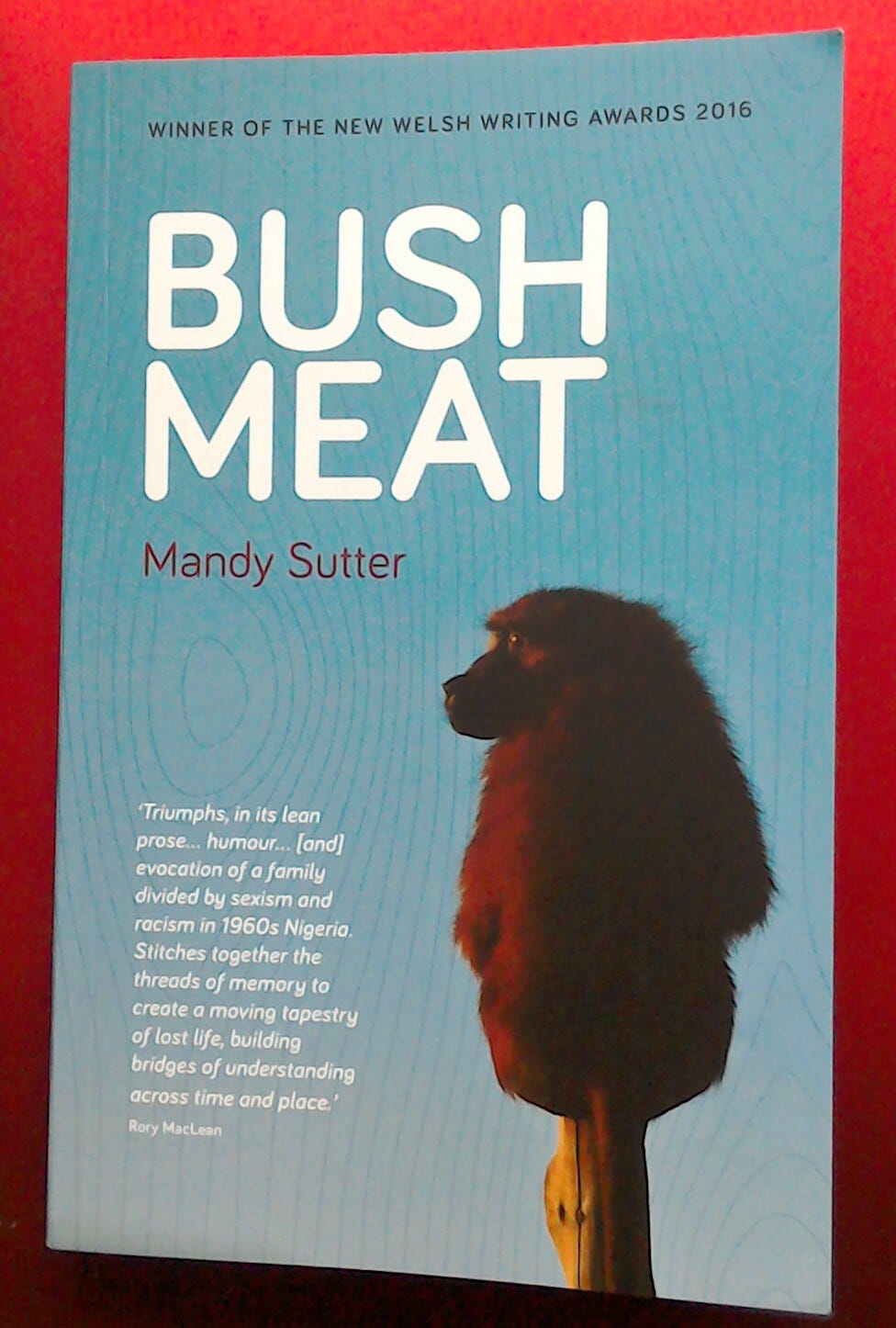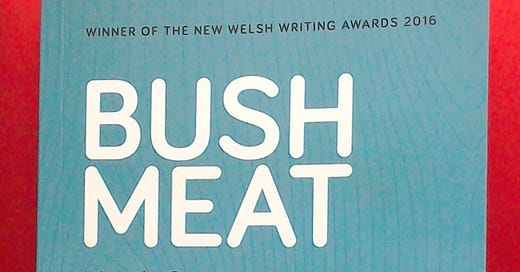Bush Meat by Mandy Sutter

Mandy Sutter is very good at those little moments of awkwardness that say so much about a character. The small but crucial details of a life, usually presented with dry and distinctly British humour. I was intrigued, therefore, to see what a collection of stories based on a couple of years spent with her (white, English) parents in Nigeria as a child would be like.
Only nine of the twenty stories are actually set in 1960s Nigeria, with others set in England just before or after this period, or later in the life of Sarah, the little girl whose father's oil-company job takes the family to this strange, hot place, so far away from Nana. Nine stories also happen to be written from Sarah's point of view, with another four from the perspective of one of her parents, and the rest from an assortment of acquaintances and teachers. Thus, in snapshots from different angles and at different times, we get glimpses of Sarah's life, and the context of the family's time abroad.
Seeing Nigeria through Sarah's eyes as a child, we get a more matter-of-fact view than an adult might give, it's just one more new thing at an age where many situations and long words are also new. There are still boring lessons, playground games, going to a friend's house for tea, even if the surroundings have changed, and the etiquette with it. A mild object of interest in Nigeria, Sarah stands out just as much on her return home, where she is referred to at school as Miss Nigeria, after the teacher "had been the first to call Sarah by that name and now everyone did." At first glance, Sarah seems to blend her English and Nigerian experiences more successfully than the adults, as with her borrowed rituals following a family bereavement, in Seed. Three for the Price of Five, and Mobylette Dreams could be tales of any awkward, unhappy teenager, unsure of her place and using either comfort eating or belligerence as a shield.
For Sarah's mother the colonial feel of their existence in Nigeria is bothersome: the servants, the behaviour expected of the company wives, the empty days. She seems happier on her return to the English suburbs in Iroko-man, with tamed rubber plants in pots, back to normality ("What made us buy all those coffee tables?"). Sarah's father, on the other hand, seems to leave part of himself behind on his return to England, never quite settling, with whisky gradually filling the void until eventually God takes its place. Throughout all the stories, Mandy's eye for detail takes us right there. She conjures up the heat, the vegetation, the out of date kitchen in Nigeria, the unpreparedness of Sarah's mum and the contrast between staid 1960s England and the slightly chaotic life they have in Nigeria.
I keep referring to this book as a short story collection because I remember Mandy talking about it in those terms a couple of years ago, and three of the chapters have appeared as stand-alone pieces elsewhere. As such I approached it as a collection even though it seems to be being marketed as a novel, and it worked well as linked stories, with the links between some more obvious than others. Someone else who'd also read it expecting a collection of stories said to me, "I'd be disappointed if I was expecting a novel". I'd at least be confused. Perhaps neither of us reads as many experimental novels as New Welsh Rarebyte have assumed.
As a collection of short stories, however, this is a delight. Although there's an obvious hook for anyone who's interested in Nigeria or has been through a similar relocation, like all good writing Bush Meat is universal. It's about childhood, and what shapes you, the long reach of events in the past, and how the same set of circumstances are experienced and remembered differently by members of the same family. Bush Meat is available now in paperback and ebook, via the publisher New Welsh Rarebyte.



